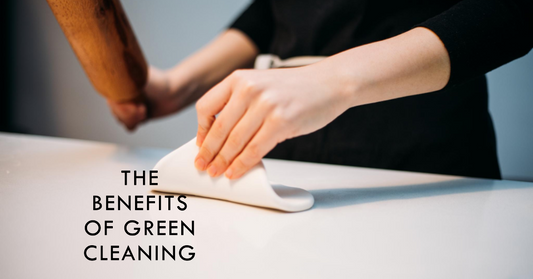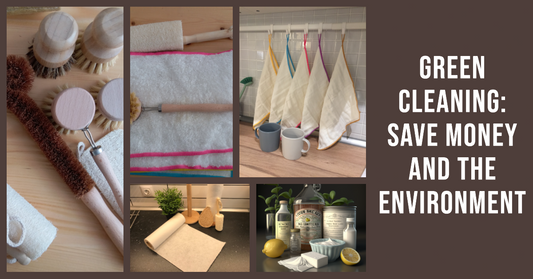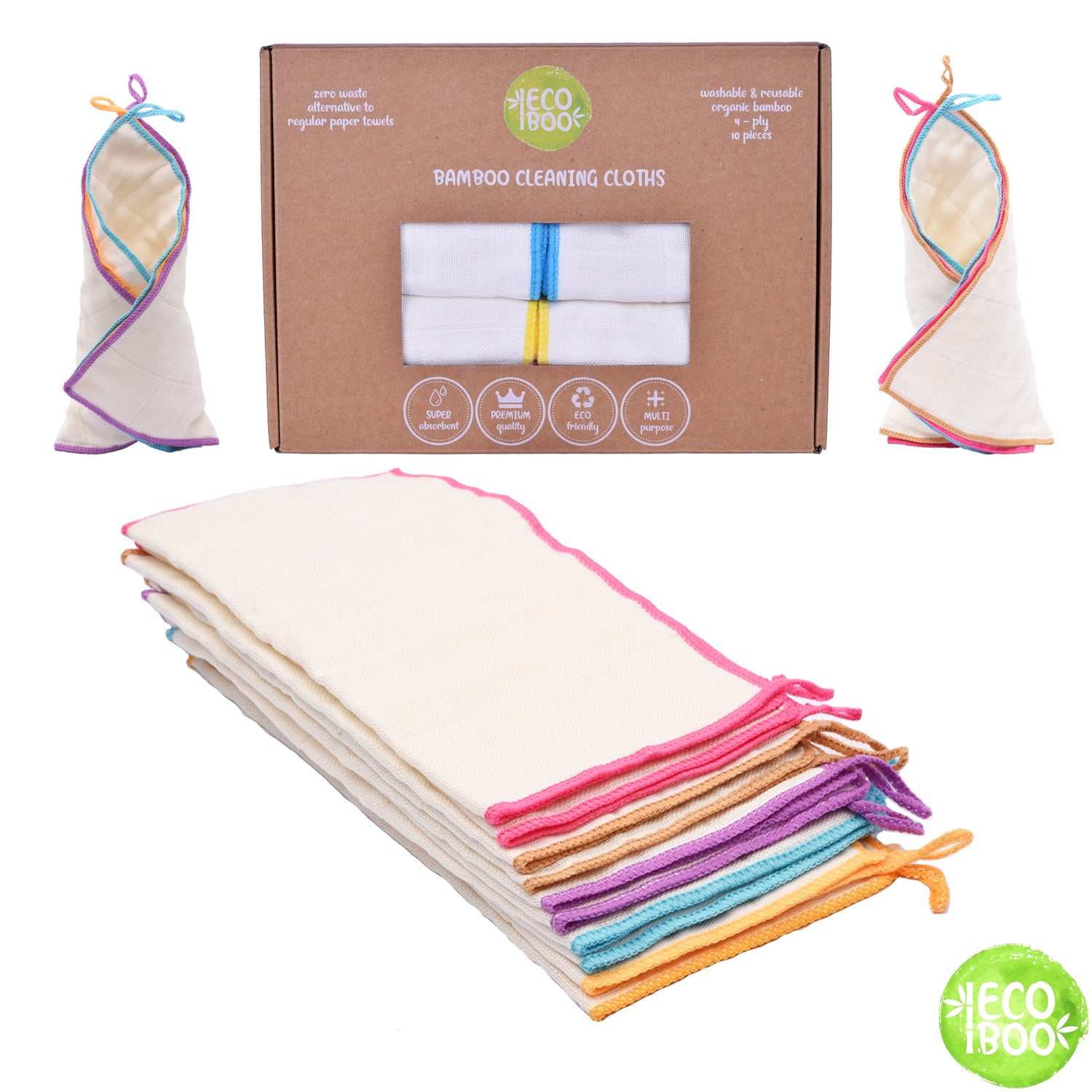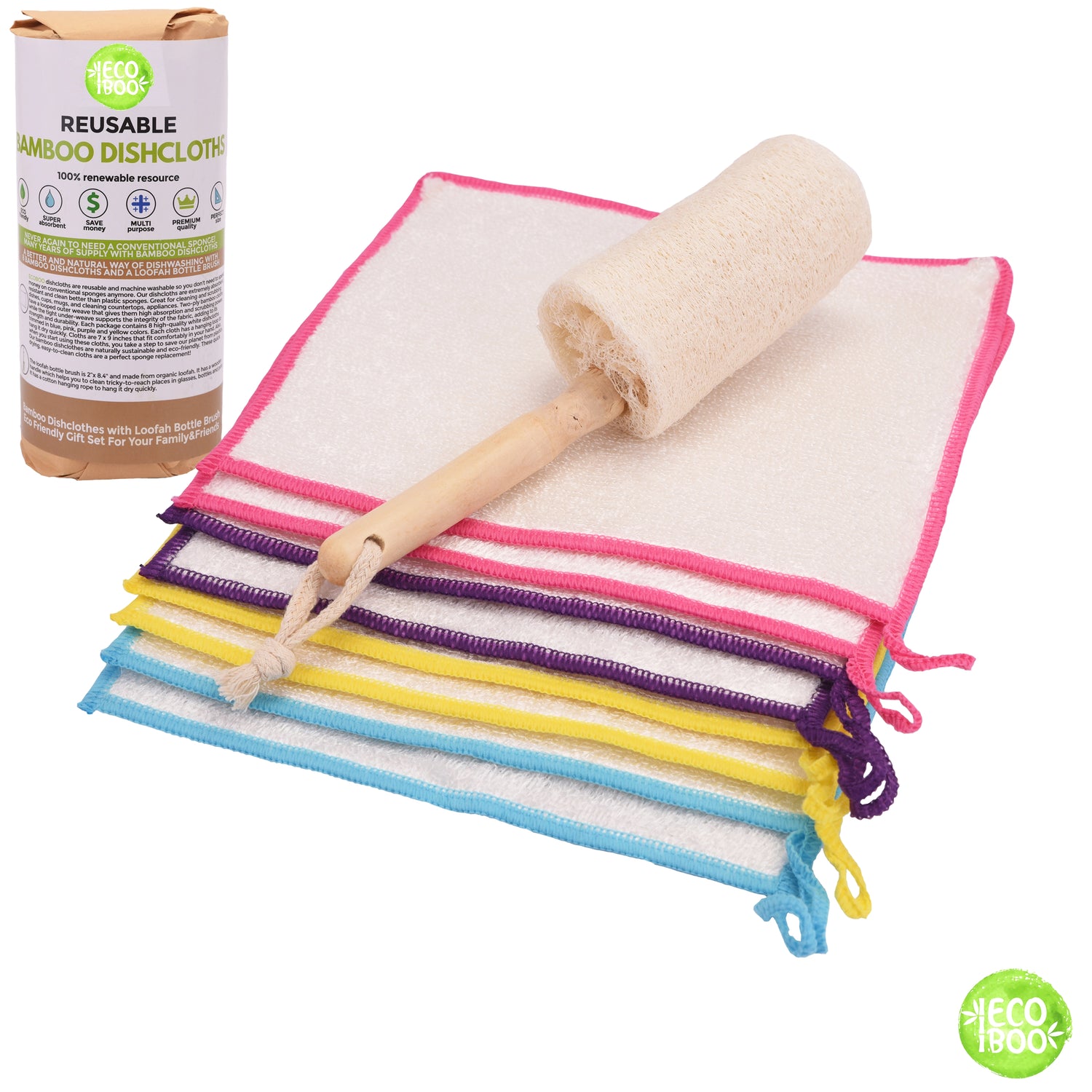Table of Contents
- The Importance of Indoor Air Quality
- How to Improve Indoor Air Quality at Home
- 1. Keep Your Home Clean and Well-Ventilated
- 2. Avoid Smoking Indoors
- 3. Choose Low-Emission Products
- 4. Use Air Purifiers and Plants
- 5. Keep Your Home Clean and Well-Maintained
- Introducing Ecoboo: Your Eco-Friendly Cleaning Companion
Indoor air quality (IAQ) is a topic that often goes overlooked, but it plays a crucial role in our overall health and well-being.
Many of us spend a significant amount of time indoors, whether it's at home, work, or other indoor spaces.
Poor IAQ can lead to a wide range of health issues, including respiratory problems, allergies, and even more severe conditions like asthma and other respiratory diseases.
In this article, we will delve into the importance of improving indoor air quality and provide you with practical tips on how to achieve cleaner and healthier air in your indoor spaces.
The Importance of Indoor Air Quality

Indoor air quality refers to the quality of the air inside a building, including its temperature, humidity, and the presence of pollutants.
The quality of the air we breathe indoors is crucial because it can have a direct impact on our health.
According to the Environmental Protection Agency (EPA), indoor air can be up to 5 times more polluted than outdoor air.
This is due to a variety of factors, such as poor ventilation, the use of certain building materials, household products, and activities that release pollutants into the air.
The effects of poor indoor air quality can be far-reaching.
Short-term exposure to pollutants in indoor air can cause symptoms like headaches, dizziness, fatigue, and eye, nose, or throat irritation.
Long-term exposure to indoor air pollutants can lead to more severe health issues like respiratory diseases, heart disease, and even cancer.
Vulnerable populations, such as children, the elderly, and people with pre-existing health conditions, are particularly at risk.
Considering that we spend so much time indoors, especially in our homes where we sleep, eat, and relax, it's crucial to prioritize improving indoor air quality to safeguard our health and well-being.
How to Improve Indoor Air Quality at Home

The good news is that there are many steps you can take to improve indoor air quality in your home.
Here are some practical tips to help you achieve cleaner and healthier air in your indoor spaces:
1. Keep Your Home Clean and Well-Ventilated

Regular cleaning and proper ventilation are essential for maintaining good indoor air quality.
Dust, dirt, pet dander, and other pollutants can accumulate on surfaces and in carpets, upholstery, and bedding.
Regular cleaning, including vacuuming with a vacuum cleaner equipped with a HEPA filter, can help remove these pollutants from your home.
It's also important to keep your home well-ventilated to allow fresh outdoor air to circulate and dilute indoor pollutants.
Open windows and doors when weather permits, and use exhaust fans in bathrooms and kitchens to help remove moisture and pollutants.
2. Avoid Smoking Indoors
Smoking is a major source of indoor air pollution and can have serious health consequences for both smokers and non-smokers.
Avoid smoking indoors, and designate your home as a smoke-free zone.
If you have guests who smoke, ask them to do so outside, away from open windows and doors.
3. Choose Low-Emission Products
Many household products, such as cleaning supplies, paints, and personal care products, can release harmful pollutants into the air.
Look for products that are labeled as low-emission or have low levels of volatile organic compounds (VOCs), which are a common source of indoor air pollution.
Opt for natural or eco-friendly alternatives whenever possible, such as homemade cleaning solutions using simple ingredients like baking soda, vinegar, and lemon juice.
4. Use Air Purifiers and Plants

Air purifiers with HEPA filters can effectively remove airborne particles, such as dust, pollen, pet dander, and smoke, from the air.
Place air purifiers in rooms where you spend the most time, such as the bedroom and living room, to ensure that the air you breathe is clean and healthy.
Look for air purifiers that are energy-efficient and have a high Clean Air Delivery Rate (CADR) to ensure optimal performance.
In addition to air purifiers, incorporating indoor plants into your home can also help improve indoor air quality.
Plants are natural air purifiers as they absorb carbon dioxide and release oxygen through a process called photosynthesis.
They can also remove harmful toxins from the air, such as formaldehyde and benzene, which are commonly found in indoor environments due to household products and furnishings.
Some examples of air-purifying plants that are easy to care for and can thrive indoors include snake plants, peace lilies, spider plants, and pothos.
These plants not only add a touch of greenery and aesthetics to your home but also contribute to cleaner indoor air.
Just be sure to choose plants that are safe for pets and children if you have them.
5. Keep Your Home Clean and Well-Maintained
Regular cleaning and maintenance of your home can also greatly impact indoor air quality.
Dust, dirt, and allergens can accumulate over time if not properly cleaned, leading to poor indoor air quality.
Here are some tips for keeping your home clean and well-maintained:
- Vacuum your floors and carpets regularly using a vacuum cleaner with a HEPA filter to trap dust and allergens.
- Use natural and eco-friendly cleaning products that do not contain harsh chemicals, as these chemicals can release harmful fumes into the air.
- Dust surfaces, such as furniture, shelves, and window sills, regularly use an unpaper towel or a reusable paper towel to trap dust particles.
- Wash bedding, curtains, and other fabrics regularly to remove dust mites and allergens.
- Keep your home well-ventilated by opening windows and doors to allow fresh air to circulate. Use exhaust fans in the kitchen and bathrooms to remove moisture and odors.
- Fix any leaks or water damage promptly to prevent mold growth, which can negatively impact indoor air quality.
By maintaining a clean and well-maintained home, you can reduce the presence of airborne particles, allergens, and toxins in the air, leading to better indoor air quality and a healthier living environment for you and your family.
Introducing Ecoboo: Your Eco-Friendly Cleaning Companion

Ecoboo is a brand committed to providing eco-friendly alternatives for everyday cleaning needs.
Their range of reusable paper towels, unpaper towels, bamboo paper towels, dishcloths made of bamboo, loofah sponges, and brushes for dishwashing is designed to help you make sustainable choices while keeping your home clean and healthy.
Their reusable paper towels and unpaper towels are made from 100% bamboo, a fast-growing and renewable resource that is naturally antibacterial and hypoallergenic.
These reusable towels are an excellent alternative to disposable paper towels, as they are durable, absorbent, and can be used for various cleaning tasks.
They are machine washable, making them easy to clean and reuse, reducing the need for single-use paper towels and reducing waste.
Ecoboo's dishcloths are also made from bamboo, providing a sustainable and eco-friendly option for wiping down surfaces, dishes, and utensils.
Bamboo is a highly renewable and biodegradable material, making it an excellent choice for reducing environmental impact.
In addition to their reusable paper towels, unpaper towels, and dishcloths, Ecoboo also offers bamboo paper towels.
These paper towels are made from 100% bamboo pulp, which is a more sustainable and eco-friendly option compared to traditional paper towels made from trees.
Bamboo is a fast-growing plant that requires less water, pesticides, and fertilizers compared to trees, making it a more sustainable choice for paper production.
Ecoboo also offers loofah sponges and brushes for dishwashing.
Loofah is a natural and biodegradable material that comes from the fibrous interior of the loofah gourd.
It is a great alternative to synthetic sponges and brushes that are made from plastic and can contribute to plastic pollution in our oceans and landfills.
By choosing Ecoboo products for your cleaning needs, you can make a positive impact on the environment and improve indoor air quality in your home.
By reducing the use of disposable paper towels, opting for natural and eco-friendly materials, and promoting proper ventilation and humidity control, you can create a healthier living environment for you and your family.
In conclusion, maintaining good indoor air quality is essential for our health and well-being.
By following these tips and incorporating eco-friendly products like Ecoboo into your cleaning routine, you can contribute to a healthier home and a more sustainable future.
Let's make conscious choices to protect our indoor air quality and the environment for ourselves and future generations.






